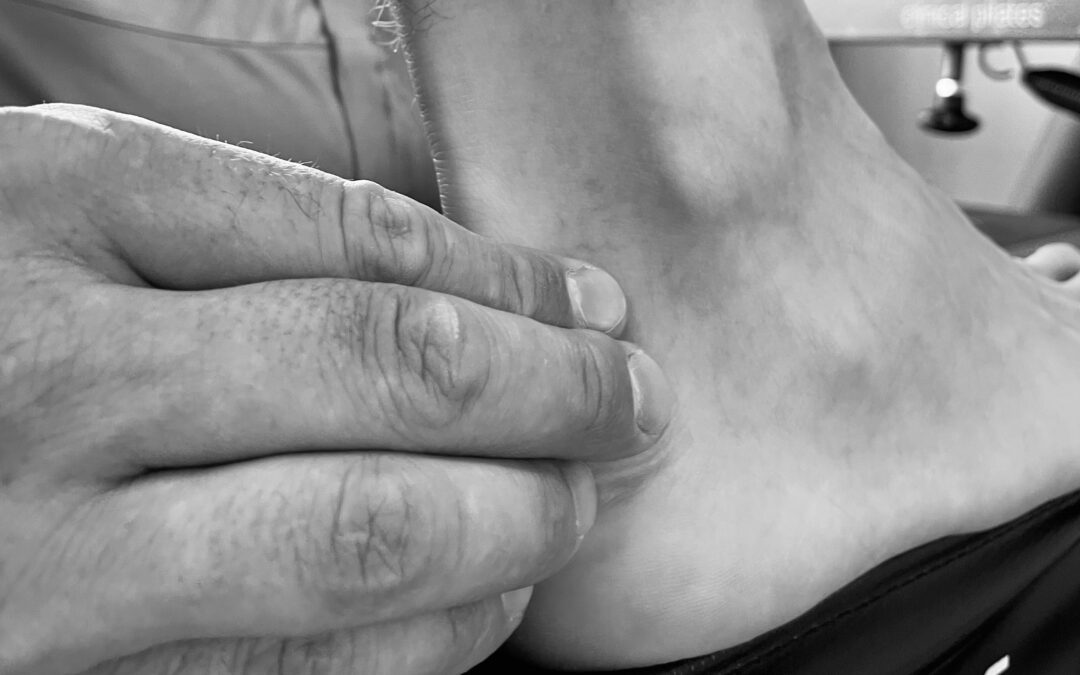Achilles tendinopathy involves pain, stiffness, and restricted movement in the Achilles tendon. It is characterised by pathological changes generally caused by overuse, i.e. more load than the tendon can handle. Over time, we can strengthen the tendon to be able to tolerate more load, but the first task in managing Achilles tendinopathy is generally to reduce tendon load, and correct any biomechanical factors (e.g. flat feet, abnormal movement patterns) which may affect the tendon alignment.
Achilles tendinopathy can happen from overuse, increased training or weight bearing load, poor mechanics and flat feet, poor calf strength or even changes in footwear. Having a tight Achilles tendon is also a risk factor for developing Achilles tendinopathy. This can be caused by a lot of exercise involving the calf, lack of calf stretching, flat feet (causing incorrect tendon alignment) or spending a lot of time in heeled shoes.
Achilles tendinopathy is most commonly seen in people doing running sports between 30-60 years of age. The condition is characterised by pain first thing in the morning after getting up, and after exercise. Often the tendon “warms up” during exercise, and the pain level decreases during activity (aside from being painful when exercise is started), before the pain resumes shortly after the tendon cools down post activity.
In severe cases though, the tendon may be painful all of the time even when the tendon is warmed up. This can lead to difficulty walking, playing sports, and doing daily activities.
Treatment of Achilles tendinopathy will involve a progressive strengthening and rehabilitation protocol. Whilst this will differ from person to person, depending on individual factors, and what stage of tendinopathy the individual is in, there will generally be incorporation of isometric exercises, full range of motion exercises, and force absorption and plyometric exercises for athletes.
Rest, although it may be used for a short period to offload a severely aggravated tendon, is not a long term solution for any tendinopathy, as although the pain may reduce, it will simply return once activity is resumed. On the flip side, pushing through the pain and continuing to aggravate the tendon to the point where the pain worsens can cause chronic and sometimes irreversible tendon changes over time, hence it is important to get it treated as soon as possible.
If you are experiencing symptoms of Achilles tendinopathy, book an appointment with us today for a detailed assessment, treatment and planning.

